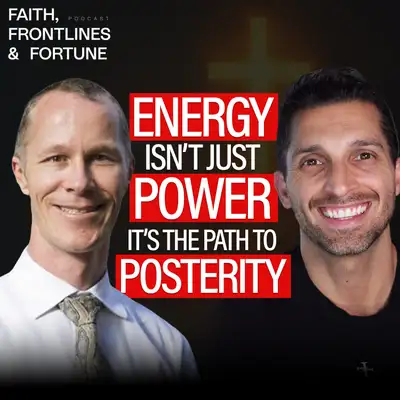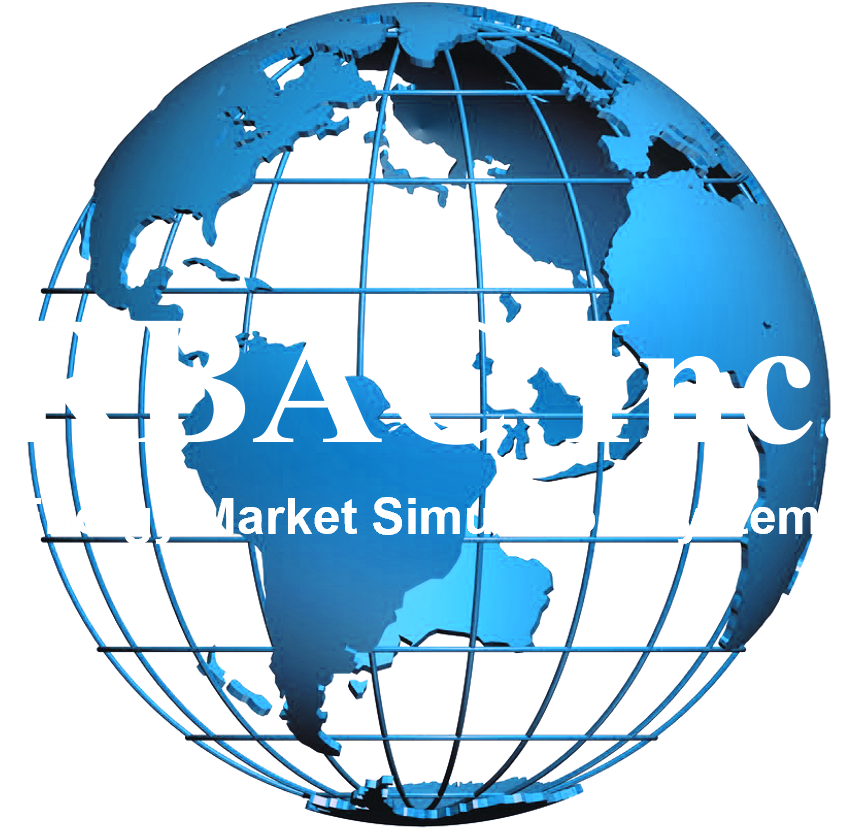
When it comes to shaping a better future—whether for a local community, a struggling economy, or a global supply chain—few elements are as vital as energy. In a recent episode of Faith, Frontlines and Fortune, podcast host and Marine Corps veteran Anderson Salgado sat down with Cyrus Brooks, Marketing Manager at RBAC Inc., to unpack the transformative role of natural gas, the economics behind energy, and how faith and purpose can power a life and career.
Key Topics:
- The Meaning and Role of Energy
- Natural Gas and Economic Productivity
- Energy Policy and Regional Disparities
- Global Impact of Clean Energy Access
- Creating Local Economies through Energy Infrastructure
Listen to the full discussion below:
Have any questions about the content covered or interest in a demonstration of our market simulation tools? Contact us today by clicking here.
If you would like to hear about future events RBAC is a part of, or hosts, join our mailing list to keep up with all things RBAC, natural gas, and LNG!
Don’t have time to listen to the full discussion? Check out our detailed breakdown below.
What Energy Really Means
“Energy means literally ‘activity’ and ‘work’,” Mr. Brooks opens the conversation by connecting energy to its Greek root. “There is no life without energy,” he explains, pointing out how energy enables jobs, through enabling action: manufacturing, transportation, commerce, “it is the great enabler.”
From this philosophical foundation, Brooks dives into the practical: RBAC’s software enables users—from energy consultants to government agencies—to simulate market behavior and forecast natural gas trends. The goal? Better energy decisions that unlock economic value, create jobs, and uplift communities.
The Economics of Cheap Energy
One of the most powerful parts of the discussion revolves around how natural gas—particularly affordable natural gas—can reduce costs across entire economies.
“Forty percent of U.S. electricity is generated from natural gas,” Brooks notes. “It touches everything—manufacturing, logistics, food production. If we keep energy costs low, we enable more activity, more productivity, and more prosperity.”
Salgado echoes this with real-world observations: the price disparity in gasoline between states like California and Texas can dramatically affect people’s lives. Brooks points out the compounding effects of local regulations, refining logistics, and taxation policies—all of which ripple through the economy.
Natural Gas as a Catalyst for Global Impact
Perhaps the most inspiring segment of the podcast comes when Brooks shifts focus to global energy access.
He shares a sobering statistic: “Indoor smoke from cooking with wood or dung kills 3 to 4 million people a year.”
Is there a feasible solution? Brooks points out that the WHO has recommended liquid petroleum gas (LPG) as a clean burning solution. Not only does LPG reduce indoor pollution and thus saving lives, but it also saves time—time that can be re-invested into education, additional, and family.
“You’re delivering them a commodity of time. This is mothers, this is fathers who actually have more time with their kids. More time to maybe … to produce other things to create even more local economics. Now you got a group of people who are not sidelined.”
The conversation highlights how U.S. companies—and policymakers—could help scale this kind of energy access across the developing world. From Africa to Latin America to Southeast Asia, Brooks sees opportunities for energy infrastructure to create self-sustaining local economies.
Why LNG Exports Matter Now
Brooks also outlines the role of U.S. LNG exports in stabilizing global markets: “If we were Europeans, that’s what we want. We want people who are allies to help us to, to get more diverse energy supplies, and as warned it is, it is a bit dangerous if you depend on your energy supply for a country such as Russia, which is, unfortunately just not always on the same page.”
It’s a pragmatic yet hopeful view of the geopolitical landscape—one where energy becomes a bridge, not a wedge.
Faith, Purpose, and the Power of Decisions
In a poignant moment, Salgado asks each guest a question from the previous guest: “What has been a decision you have made by faith more than logic and how did it shape your life and your decision-making process?”
Brooks reflects on turning down a high-tech defense job on missile systems right out of college. Instead, he chose to serve in humanitarian roles around the world—teaching literacy, promoting drug education, and supporting human rights. “As cool as it was. I mean, I do like rockets. I love propulsion systems. I like it a lot. … But at the same time, I thought I’m a pretty smart guy and I thought that is not where I want to put that smart… I want to put it towards making a better world, making a better future. And so that that changed my life entirely.”
That same values-driven mindset informs his work today. “It’s such a fascinating subject. I mean, you could really use this software not just for making money, but actually to make a difference.”
The Final Word
Mr. Salgado sums it all up, “I think you’re right. I think any developed country that places emphasis in energy has a competitive edge. They have truly embraced what growth looks like. It’s all starting from, you know, the utilization of energy”
Want to learn more about how RBAC is helping shape the future of energy? Visit https://rbac.com or connect with Cyrus Brooks on LinkedIn.
RBAC is the market-leading supplier of global and regional gas and LNG market simulation systems used by the energy industry and related government agencies for over two decades. The GPCM® Market Simulator for North American Gas and LNG™ is the most widely used natural gas market simulation system in North America. RBAC’s G2M2® Market Simulator for Global Gas and LNG™ has been instrumental in understanding evolving global gas and LNG market dynamics and is vital to fully grasp and leverage the interrelationship between the North American and global gas markets.


